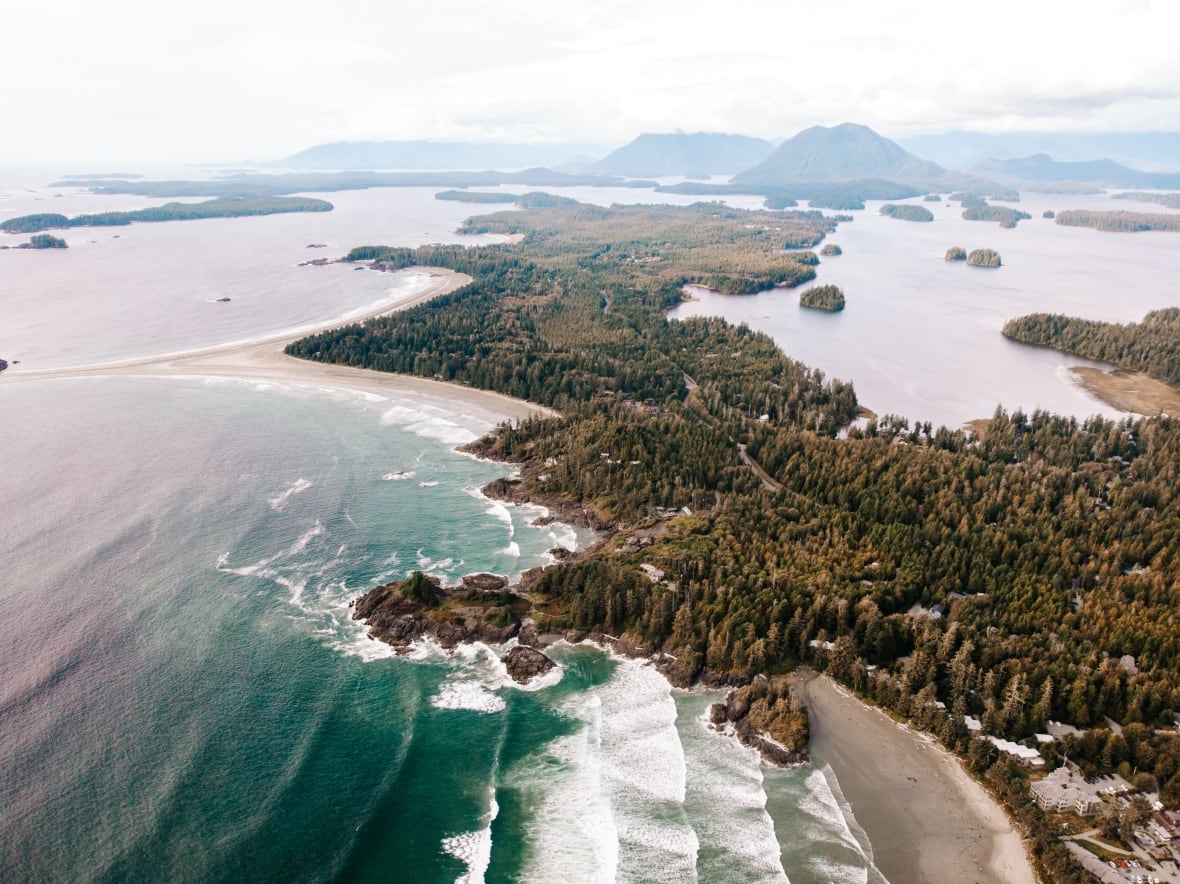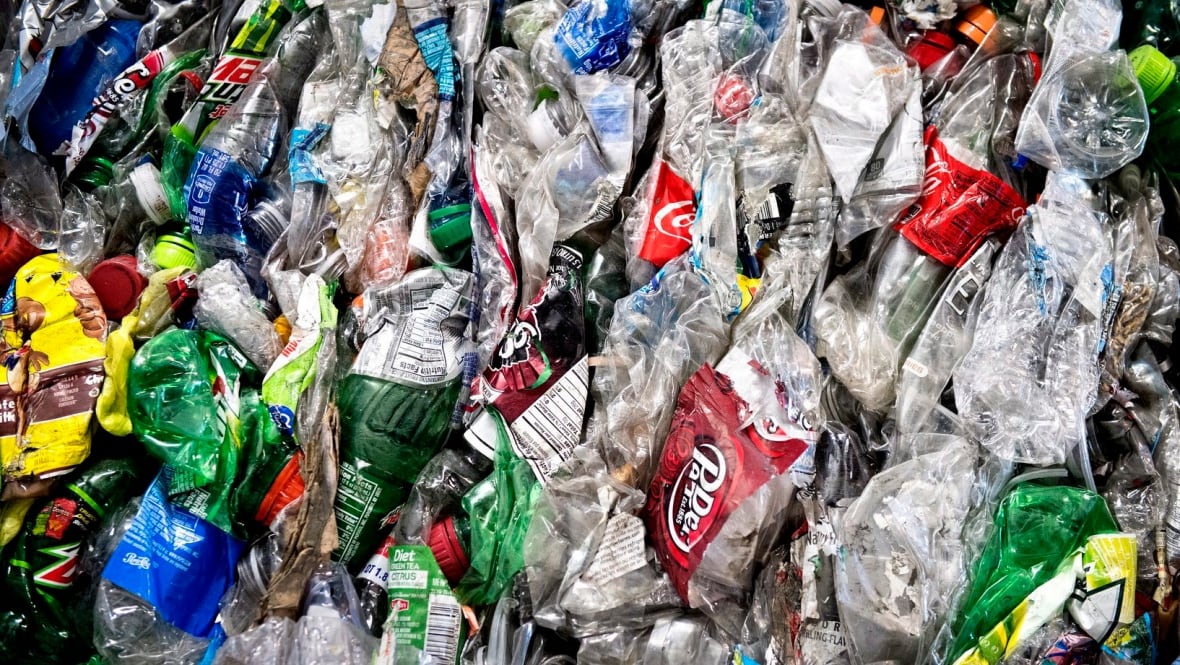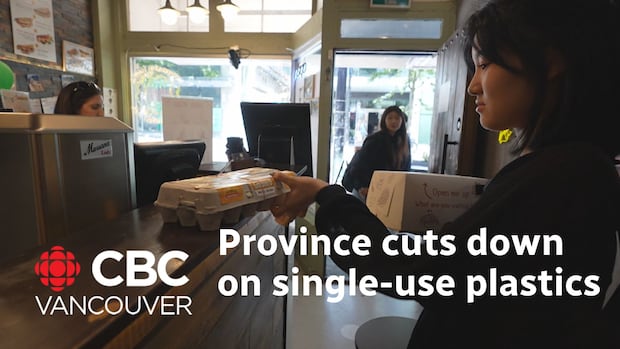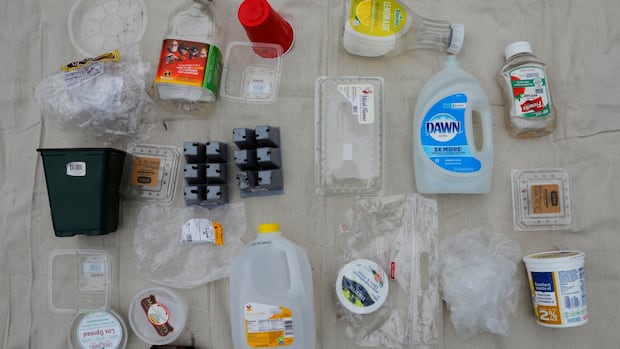The District of Tofino says it’s banning the sale of single-use plastic water bottles one litre and under, barring a few exceptions — a move the municipality says is the first of its kind in Canada.
It’s part of an amendment to the district’s existing single-use plastic bylaw, which was formally adopted at a council meeting late last month.
The new regulation is set to take effect on April 22, 2026, coinciding with Earth Day, to provide businesses some time to prepare for the transition. Exemptions will apply to bottles sold in bulk, as well as during emergencies or water shortages.
 Beaches are pictured here in this aerial shot of Tofino, B.C. The coastal community had previously banned single-use plastic cutleries, bags and polystyrene takeout containers. (fokke baarssen/Shutterstock)
Beaches are pictured here in this aerial shot of Tofino, B.C. The coastal community had previously banned single-use plastic cutleries, bags and polystyrene takeout containers. (fokke baarssen/Shutterstock)
Mayor Dan Law said the decision builds on years of community efforts to reduce plastic waste.
“By eliminating single-use plastic water bottles one litre and less, Tofino is taking another meaningful step to protect our oceans, beaches and wildlife,” Law said in a statement on Wednesday. “This bylaw reflects our shared responsibility to the environment and to future generations.”
The coastal town has previously banned items including plastic bags, straws, utensils and foam containers, with the support of advocacy group the Surfrider Foundation.
It is an organization that works with environmental experts to find sustainable solutions to help protect Canadian coasts by combating plastic pollution.
“[We are] thrilled to make history once again with the District of Tofino through this landmark ban,” said Lilly Woodbury, regional chapter manager with Surfrider Foundation Canada. “This community-driven achievement has been many years in the making.”
 More than 40 per cent of plastic items in B.C. get used only once. (Francis Gardler/The Journal-Star via Associated Press)
More than 40 per cent of plastic items in B.C. get used only once. (Francis Gardler/The Journal-Star via Associated Press)
Plastic bottles are among the most common items found in shoreline cleanups, according to environmental groups. The Ocean Legacy Foundation estimates more than a million go missing in B.C. each year, with more than 60,000 recovered from Vancouver Island’s west coast beaches since 2015.
Once in the ocean, bottles break down into microplastics, which can be harmful to marine life, the district says.
Tofino plans to roll out a public education campaign in partnership with Surfrider, Tourism Tofino and the local chamber of commerce to prepare businesses and visitors for the change.
The district is also encouraging visitors to bring reusable bottles, noting that Tofino’s “high quality” drinking water comes from rain-fed creeks and old-growth forests protected by Tla-o-qui-aht Tribal Parks.
WATCH | B.C.’s latest step of single-use plastics ban: 
B.C. goes ahead with next step of single-use plastics ban
British Columbians will no longer receive plastic and Styrofoam takeout containers and will be charged fees for new shopping bags as part of single-use plastic regulations rolling out Monday. As Meera Bains reports, these are the latest steps in the province’s push to reduce single-use plastics.
The ban comes amid wider provincial and national moves to curb single-use plastics.
Many municipalities have already developed their own rules over the use and distribution of single-use plastics, such as banning plastic bags in favour of reusable bags or fee schemes for replacements.
According to the province, since it launched its CleanBC Action Plan in 2019, 21 municipalities have established bylaws to limit single-use plastics in their communities.
